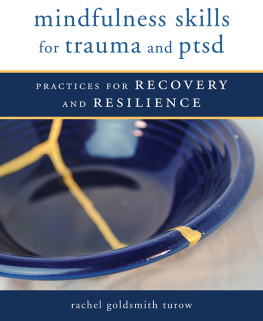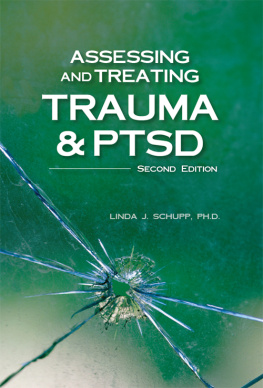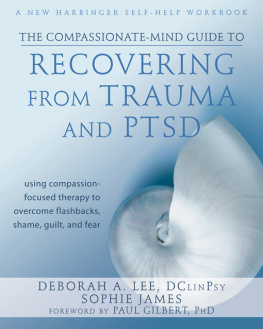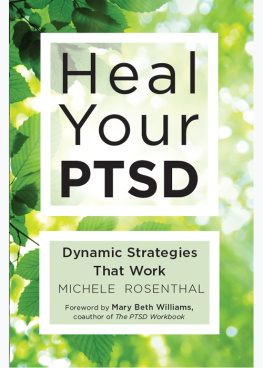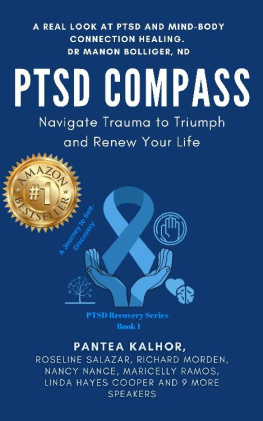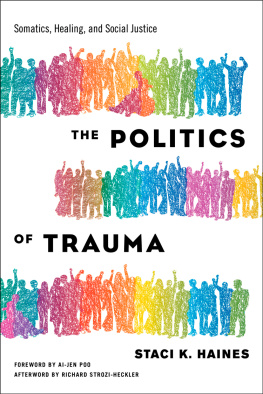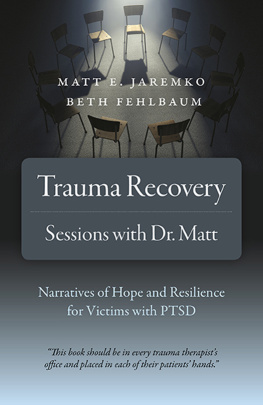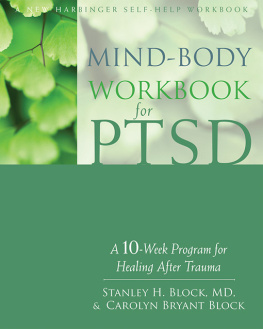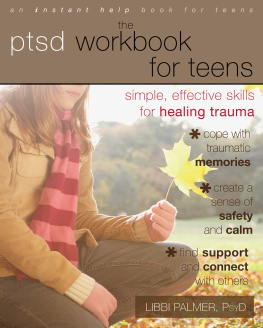A humane, compassionate, and extremely helpful guide to the complex world of mental health care. Knowing whats wrong and when to seek help can be life-changing, and Mortons book is packed with tools and tips for navigating life with mental health challenges.
John Green, #1 New York Times bestselling author of Turtles All the Way Down and The Fault in Our Stars
An exemplary guide for anyone wondering if they or someone close to them may benefit from mental health therapy.
Library Journal
An intuitive handbook that empowers readers to tend to their own mental health Chapters provide practical tools for handling anxiety, depression, and other mental health difficulties, while also offering powerful insights.
Publishers Weekly
[Morton] answers the questions many of us have but dont necessarily feel comfortable asking. This is information everyone can benefit from.
Bustle
Compassionate and hopeful.
Energy Times
An undeniably essential read.
Cultured Vultures
Copyright 2021 by Happyable, Inc.
Cover design by Terri Sirma
Cover photographs: popovartem.com/Shutterstock; Kitsana1980/Shutterstock
Cover copyright 2021 by Hachette Book Group, Inc.
Hachette Book Group supports the right to free expression and the value of copyright. The purpose of copyright is to encourage writers and artists to produce the creative works that enrich our culture.
The scanning, uploading, and distribution of this book without permission is a theft of the authors intellectual property. If you would like permission to use material from the book (other than for review purposes), please contact permissions@hbgusa.com. Thank you for your support of the authors rights.
Hachette Go, an imprint of Hachette Books
Hachette Book Group
1290 Avenue of the Americas
New York, NY 10104
HachetteGo.com
Facebook.com/HachetteGo
Instagram.com/HachetteGo
First Edition: September 2021
Hachette Books is a division of Hachette Book Group, Inc.
The Hachette Go and Hachette Books name and logos are trademarks of Hachette Book Group, Inc.
The publisher is not responsible for websites (or their content) that are not owned by the publisher.
Library of Congress Cataloging-in-Publication Data
Names: Morton, Kati, author.
Title: Traumatized: identify, understand, and cope with PTSD and emotional stress / Kati Morton, LMFT.
Description: First edition. | New York: Hachette Go, [2021] | Includes bibliographical references.
Identifiers: LCCN 2021008018 | ISBN 9780306924354 (hardcover) | ISBN 9780306924347 (ebook)
Subjects: LCSH: Post-traumatic stress disorder. | Stress (Psychology) | Social mediaPsychological aspects.
Classification: LCC RC552.P67 M684 2021 | DDC 616.85/21dc23
LC record available at https://lccn.loc.gov/2021008018
ISBNs: 9780306924354 (hardcover), 9780306924347 (ebook)
E3-20210803-JV-NF-ORI
To my patients and viewers who were brave enough to share their stories and teach me what its really like to be traumatized. And to anyone who has ever felt like they were being too sensitive or alone with their pain. This book is for you.
The people and patients I have discussed in this book have charitably given their permission. Many of the stories I share are very personal and come from those I know in my private life, as well as from my own life experience. To protect the privacy of those mentioned, all names and identifying details have been changed. The stories shared in this book are done to help further illustrate how mental health can affect us. This book is meant to empower you to get the help you need and deserve. It is not a replacement for actual mental health treatment. If you are struggling with mental health issues, I urge you to seek professional help as soon as possible.
I have many goals for this book. Most important, I want it to help you more clearly understand what it means to be traumatized. I have been creating content online for over nine years and not a day goes by that someone doesnt message me asking if what they experienced is considered trauma or not. Most of us dont know the nuances and diagnostic criteria that help mental health professionals decide whether what someone is going through is a post-traumatic response. That information shouldnt be something we only have access to if we can afford to see someone. Trauma should be discussed openly, honestly, and done so often that if someone in our life goes through a terrifying situation, they feel empowered and supported enough to talk about and heal from it. My goal of getting mental health information out to those who need it has been the driving force behind my YouTube channel, my podcast, and now this book; if we dont have an understanding of trauma and how its defined, how can we work to overcome it? We cant get help with something we dont know we have.
Having a name to put to what we feel can be validating and gives us a place to start when it comes to getting help. Information is empowering and gives us the language to frame our requests for support. This helps us figure out what type of mental health professional we are seeking and what to ask for when we make that first appointment. It can also help to know what the different trauma symptoms are, and how they can feel, so that we can more easily express whats going on to those who can help us. This can ensure we get useful tools and skills right away, and shorten the amount of time we spend in pain or feeling misunderstood. By walking you through all of this information, I hope you feel better prepared to ask for the help you need, want, and deserve.
I want you to know that I dont consider myself a trauma specialist. My career up until this point has focused on helping those with eating disorders and self-injury urges. I did most of my postgraduate work in an eating disorder treatment center and continued that work when opening my private practice. However, an interesting thing happened: As I helped my patients overcome their self-destructive urges, I began to realize that most of the reasons behind their desire to numb out or disappear grew out of their past trauma. Trauma was the common thread connecting these mental illnesses, and it was the root of the issues I was seeing each day. Without understanding it and how to treat it, I couldnt be an effective therapist, and I couldnt help my patients when they needed it most. Its because of this realization that I began to research trauma, and talk in depth about it with my online community, which inevitably drove me to write this book: so that anyone dealing with trauma or seeking more knowledge could find the answers and resources needed to help them on their path to recovery.
I hope that by offering therapeutic tools and techniques, as well as which styles of therapy are most effective, I am arming you with all you need to process what happened, begin healing, and be able to move past it to live the life you deserve. I also want the stories from my community to validate all you have been feeling and remind you that you are not alone in what you are going through. By shedding light on what trauma is and how it can feel, and by offering resources to help repair the damage, I hope more people feel seen, heard, and empowered to take their life back.
Surviving trauma is unimaginably difficult, and that can make it hard for us to see any good in the world. My goal is that this book is your much-needed reminder of the kindness still out there: that we can come together to validate one anothers pain, connect through the heavy times, and share in healing knowledge and helpful resources. Today, we are more connected than ever before; lets use that to our advantage by sharing compassion, knowledge, and support.


